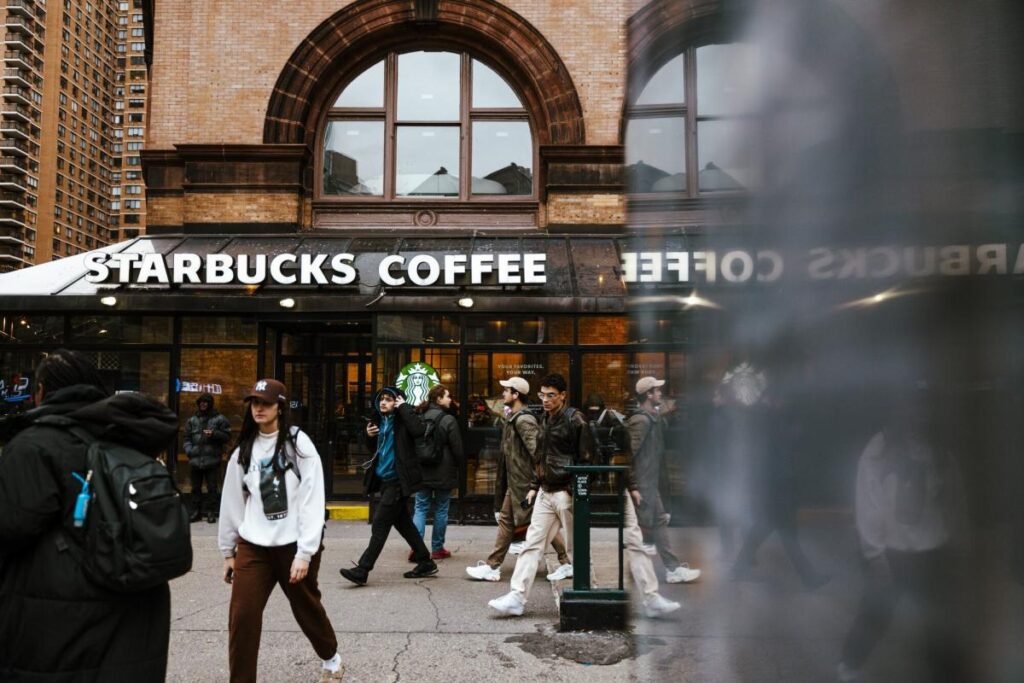(Bloomberg) – Starbucks Corp. shareholders have approved a plan to eliminate bonuses tied to DEI targets for executives and replace them with more general employee targets while directing more compensation toward financial performance.
Most Read Articles on Bloomberg
The new structure, approved at the annual general meeting on March 13, has a specific goal of tying 7.5% of executive bonuses from the 2023 compensation package to undisclosed targets related to diversity, equity and inclusion. are excluded.
The company said in a filing Friday that the new plan was approved by 92% of shareholders. Votes are not binding, but companies tend to change compensation if plans fail or receive significant opposition. The coffee chain announced for the first time that it would include ESG-related targets in executive compensation in October 2020.
Starbucks' equality, social and governance goals will be part of a long-term incentive program that will account for about 25% of bonuses, but DEI will no longer be mentioned, and “talent” will be mentioned instead. The percentage of bonuses paid for achieving financial targets has increased from 70% to 75%.
In a previous regulatory filing, the company said it had chosen to “change our talent metrics to include a broader workforce and set various representation improvement goals in connection with this change.” . The company said the changes were made after a meeting with shareholders.
Starbucks maintains inclusion and diversity goals within its overall compensation structure, a spokesperson said in a statement. The U.S. goal of achieving racial and ethical diversity of at least 30% at all corporate levels and at least 40% across manufacturing and retail roles by 2025 also remains in place, the company said. .
Conservative activists have targeted executive pay that rewards leaders for achieving DEI goals, arguing that such incentives can encourage illegal hiring practices to meet corporate diversity goals. claims. This is part of a broader backlash against corporate diversity programs after the U.S. Supreme Court ruled that affirmative action in college admissions is illegal.
In August, Strive Asset Management, an anti-activism foundation co-founded by former Republican presidential candidate Vivek Ramaswamy, sent a letter to Southwest Airlines warning it to end incentives in executive pay for environmental and social goals. Justin Danhoff, head of corporate governance at Strive, said the group has also met privately with about a dozen large companies about the issue, but declined to name them.
He said in an interview that Strive plans to release a detailed report later this year, after proxy season, and Strive said “all companies that include ESG/DEI in their compensation plans , voted against the Compensation Plan and the Chairman of the Compensation Committee,” he added. ”
The Conference Board found that approximately 76% of S&P 500 companies are incorporating DEI/ESG incentives into their compensation plans in 2023, up from approximately 67% in 2021. These goals may include a mix of climate change and diversity goals, the study found.
Charles Tharp, a professor of executive compensation at Boston University, said Starbucks' switch to “talent” allows the company to improve its applicant pool while avoiding the term DEI, which has been “weaponized” by opponents. It is said that it is clear that they are trying to expand. University of Questrom School of Business.
Companies use compensation plans to highlight issues they think are important to investors, employees, customers and the general public, Tharp said. He added that opposition to incentives, such as last year's letter from 13 state attorneys general questioning the legality of certain companies' DEI plans, will no doubt cause future alarm.
“What I hope is that we don't get into what's called diversity hashing, where people don't want to talk about what they're doing,” Tharp said.
–With assistance from Saijel Kishan and Clara Hudson.
(Article updated with company comment in 6th paragraph)
Most Read Articles on Bloomberg Businessweek
©2024 Bloomberg LP


